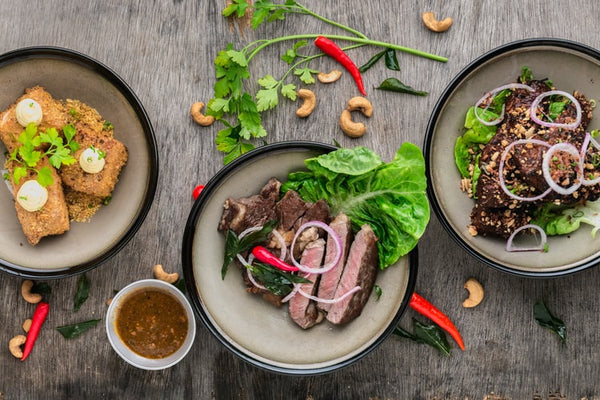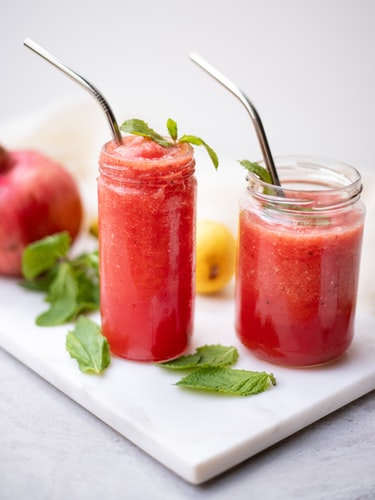First of all, what is the prostate gland? The prostate gland is unique to men. It’s part of the male reproductive system. Usually described as walnut-sized, it’s located deep in a man’s pelvis, below the bladder. (To see where it’s tucked away, visit this page by the CDC for a clear illustration.)
The prostate produces the milky fluid for semen. This seminal fluid nourishes the sperm made in the testes and helps transport it. Semen is ejaculated when the prostate muscles contract.
A healthy prostate is one that doesn’t cause problems. Because it’s so internally located, its health is often determined by that uncomfortable event, a rectal exam.
Signs of something amiss with the prostate may include:
- Annoying urination changes, such as increased urge, more frequent nighttime urination needs, leaking urine or dribbling
- Signs of blood in either the urine or semen
- Pain with urinating or ejaculating
Ways to Keep a Healthy Prostate
Most people learn about prostate health because as men get older, the prostate tends to grow in size. While this is not always a worry, it can cause the urethra to get more narrow, which results in less-free urine flow. This condition is known as benign prostatic hyperplasia or BPH. Another reason the prostate is of interest is to be aware of the possibility of prostate cancer.
Things You Can Eat or Drink for Prostate Health
If you’re looking for ways to reduce an enlarged prostate naturally, you may well ask, “What foods are good for shrinking the prostate?” Or, “What is the best thing to drink for your prostate?”

Foods for Prostate Health
Below are suggestions of some foods that may shrink prostate gland enlargement or prevent other prostate problems, along with some to definitely avoid or reduce.
It’s advised to keep your prostate happy to eat plenty of fresh vegetables and fruits, along with legumes (peas, beans, lentils), and whole grains.
You want to avoid foods that raise PSA levels, as these are antigens that may signal prostate cancer. Some of these foods include:
- Red Meat
- Dairy, Calcium, and Soy
- Canned Foods and High-salt Content Foods
- Sugar and Artificial Sweeteners
- Heated Oils
Men who want to build muscle may want to know that there are many foods that may be otherwise considered healthy but can be bad for prostate health.
For example, are eggs bad for the prostate? Yes, according to NCBI research, eggs are high in choline and cholesterol, both of which are associated with prostate cancer.
What about peanuts, which are high in protein? Is peanut butter good for prostate health? As a Harvard Health article explains, peanut butter can be a food with a “good” type of fat, monounsaturated fats. However, be sure to buy the natural type without added sugar, salt, and hydrogenated oil.
Drinks to Consume and Avoid for Prostate Health
So, you want to know, is drinking a lot of water good for your prostate? Yes, water is essential. You need to stay hydrated, and should not cut down water to reduce your need to urinate. If you already have BHP, does drinking water help enlarged prostate sufferers? Again, the answer is affirmative: Drinking 6-8 glasses of water every day can help bacteria from accumulating in the bladder.
Other beverages to drink to help your prostate include:
- Pomegranate Juice
- Green Tea and Hibiscus Tea
- Mango and Papaya Juice or Juice Derived from Berries Can Be Good as Well
Now the beverages to avoid, especially if you have prostatitis or an enlarged prostate (known as BPH):
- Alcohol
- Caffeinated Drinks, Soda, or Energy Drinks
- Dairy Drinks (Milk, Drinkable Yogurt)
- Acidic Fruit Juices (e.g., Orange or Grapefruit Juice, Which Can Irritate the Bladder)
So, is coffee bad for your prostate? You may find mixed advice on coffee. While caffeine is a diuretic, increasing the urge to urinate, Healthline encourages drinking large amounts of coffee (as many as 4-5 cups per day), as the behavior is correlated with a lower risk of fatal prostate cancer.

Take Your Supplements
There are numerous natural substances, including herbs and spices, used for supplements due to their potent anti-inflammatory, anticancer, and other healing properties.
You may have heard of turmeric as one of these. Can turmeric shrink prostate problems down to size? Studies have shown that the colorful compound in turmeric called curcumin may weaken or even stop tumor cell production. Taking curcumin supplements while undergoing radiotherapy can be very beneficial, partly by lowering the risk of urinary tract problems that often result from the therapy.
If you are serious about prostate health and want to know what shrinks the prostate as far as natural supplements, Medical News Today describes many plant and herb-based remedies. Rather than taking many individual supplements and trying to consume all the dietary elements that support prostate health, it may be far easier as well as more effective to take a clinically-formulated supplement.
Revive MD’s Prostate supplement contains 10 of the most widely accepted natural ingredients to support prostate health and normal bladder functions. These capsules contain saw palmetto, stinging nettle extract, pine bark extract, pumpkin seed, lycopene, and other essential compounds.

Takeaway
We've outlined how to reduce prostate enlargement naturally, as well as our choice for the best supplement to shrink the prostate size and reduce bladder problems.
Like most health matters, it’s best to be proactive. While prostate cancer is treatable, it’s much nicer to avoid it, of course, as well as the nuisance of other enlarged prostate symptoms. It’s smart to start taking action as soon as you learn about prostate health, avoiding certain foods, taking supplements, and getting health checks as frequently as recommended for your age group.
The information being presented in this blog is intended to be used as educational or resource information only. It is not intended to be a substitute for medical advice from your healthcare provider. This content should not be used for the diagnosis or treatment of any medical condition. If you have any questions or concerns about your health, please contact your healthcare provider. You should call 911 for all medical emergencies. Revive MD is not liable for any advice or information provided on this blog, which advice or information is provided on an “as-is” basis, and assumes no liability for diagnosis, treatment, decisions, or actions made in reliance upon any advice or information contained on this blog. No warranties, express or implied, are made on the information that is provided.

